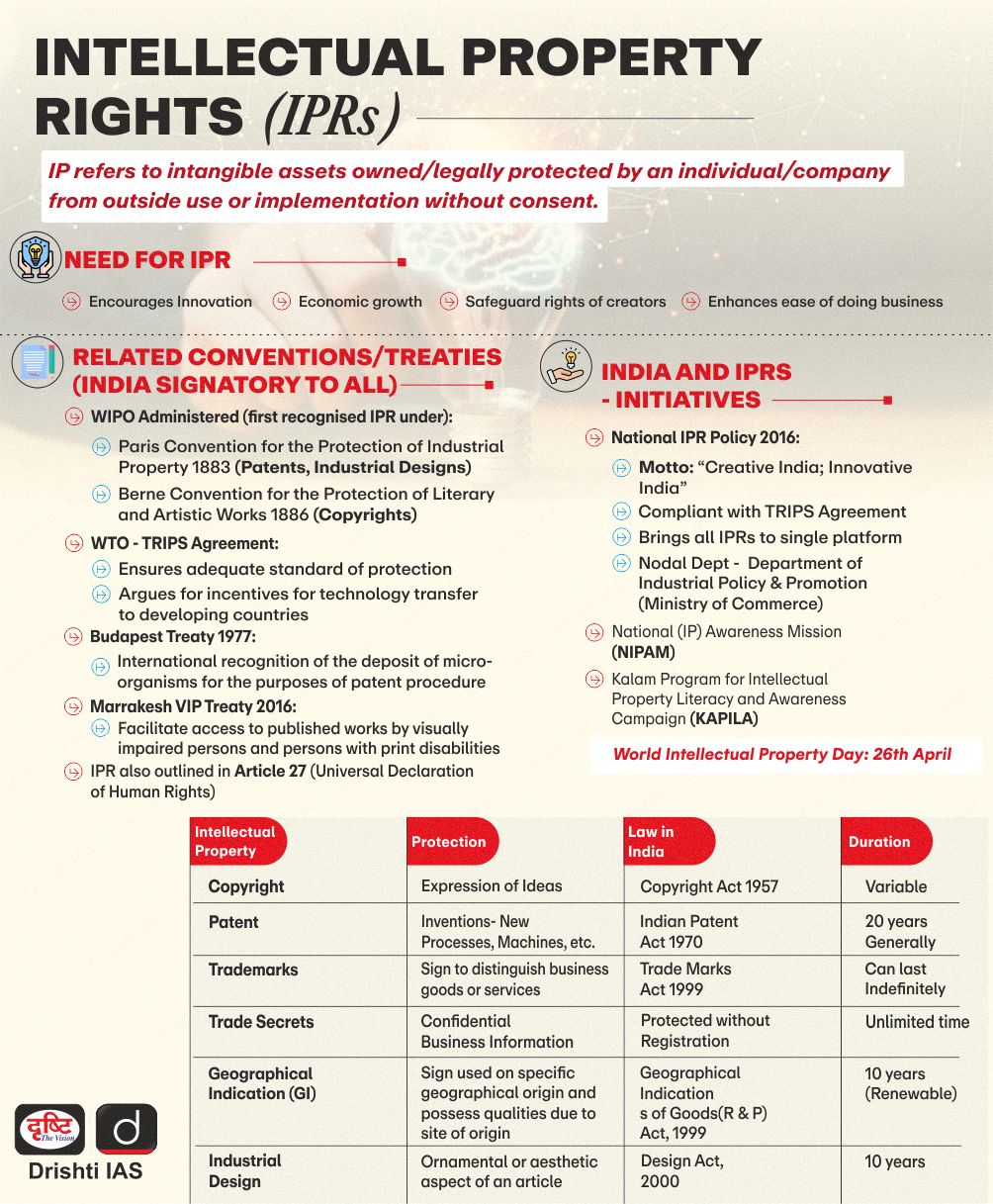Personality Rights | 03 May 2025
Why in News?
The Madras High Court (HC) ordered Meta and Telegram to remove fake accounts and channels misusing choreographer Anita R. Ratnam’s images and deep fake audio in investment frauds citing violation of Personality Rights.
- She is a pioneer of Neo Bharatam, a unique dance style combining Bharatanatyam, Kathakali and Yoga.
What are Personality Rights?
- About: Personality Rights protect an individual’s public persona like name, voice, image, mannerisms as part of their broader right to privacy or property.
- It grants control over the commercial use of one’s name, image, or likeness.
- It can be further divided into two categories:
- Right of Publicity: Protecting an individual’s image and likeness from unauthorized commercial use, akin to trademark rights.
- Right to Privacy: Safeguarding against public representation of one’s personality without consent.
- The Right to Privacy under Article 21 of the Indian Constitution offers the closest legal protection (though not explicitly mentioned).
- Key Related Provisions in India:
- Copyright Act, 1957: It indirectly protects personality rights via passing off and deception against misusing a person’s identity.
- "Passing off" is when goods or services are misrepresented as belonging to someone else, while deception involves misleading use of a person’s name or likeness.
- Under this, creators or performers hold moral rights, including the right to be credited (attribution) and to oppose any alterations that could harm their reputation (integrity).
- Indian Trademarks Act, 1999: Section 14 restricts the use of a trademark that falsely suggests a connection with a living person or a deceased person within the last 20 years unless consent is obtained.
- Information Technology Act, 2000: Section 66C of the act addresses the punishment for identity theft, specifically using someone else's electronic signature, password, or unique identification feature fraudulently or dishonestly.
- Copyright Act, 1957: It indirectly protects personality rights via passing off and deception against misusing a person’s identity.
- Related Key Judgments:
- Krishna Kishore Singh vs Sarla A Saraogi Case, 2021: The Supreme Court (SC) ruled that rights to privacy, publicity, and personality are not inheritable and cease upon the actor's death.
- Justice KS Puttaswamy vs Union of India Case, 2017: The SC affirmed privacy as part of the right to life under Article 21, but noted it can be restricted for a legitimate state aim with proportionate measures.
- Shivaji Rao Gaikwad vs Varsha Production Case, 2015: The Madras HC recognized personality rights, even though there is no specific statutory definition in India.
- Arun Jaitley vs. Network Solutions Private Limited Case, 2011: The Delhi HC noted that an individual's popularity or fame is equally significant online as in real life.
- M. Entertainment Pvt. Ltd. vs. Baby Gift House Case, 2010: The Delhi HC ruled in favor of D.M. Entertainment Pvt. Ltd., holding that the unauthorized sale of dolls imitating singer Daler Mehndi's likeness and songs constituted a violation of his personality rights, thereby affirming his commercial right to control the use of his public image.
UPSC Civil Services Examination Previous Year Question (PYQ)
Q.‘Right to Privacy’ is protected under which Article of the Constitution of India? (2021)
(a) Article 15
(b) Article 19
(c) Article 21
(d) Article 29
Ans: (c)
Q. Right to Privacy is protected as an intrinsic part of Right to Life and Personal Liberty. Which of the following in the Constitution of India correctly and appropriately imply the above statement? (2018)
(a) Article 14 and the provisions under the 42nd Amendment to the Constitution.
(b) Article 17 and the Directive Principles of State Policy in Part IV.
(c) Article 21 and the freedoms guaranteed in Part III.
(d) Article 24 and the provisions under the 44th Amendment to the Constitution.
Ans: (c)

